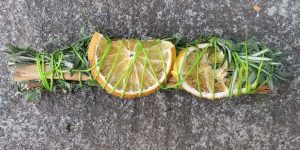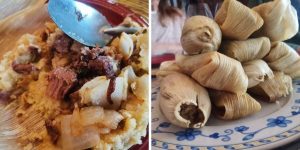- Eat Your Weeds. Dandelions Are Good For You!
It’s the dandelion season now and if there’s one thing I learned as an amateur forager it’s to eat your weeds. Dandelions boast a number of great health benefits.
But you can also brew them and drink your way to good health! Now, most everyone has heard of dandelion wine but something most people don’t hear about is dandelion mead which is way fancier. And stronger.
You wouldn’t expect it but dandelions have a honey-like flavor. It’s why they’re used in wine and other recipes, so it just makes sense to infuse mead with weeds. If you haven’t made mead before it’s the perfect time to give this a go!
Things to Remember When Foraging:
Make sure to forage from an area not likely sprayed with chemicals. Most people consider dandelions to be weeds, so it’s best to pick them from unkempt lawns or fields and not along the roadside.
While dandelions are plentiful, the numbers drastically decrease when you become picky about where you pick from. All you’ll need are those yellow petals so just pluck off the heads and leave the rest of the plant.
Basics of Mead Making
This is just a spin on mead, technically called a metheglin, because it’s an infused mead. You can infuse mead with all sorts of things from flowers to fruits to spices or all of them, to get different flavor profiles in brewing. The craziest mead I ever saw was chocolate-infused.
For those who aren’t familiar, mead is a mix of water, honey, yeast, and sometimes flavoring agents. It’s left to brew in a glass jug for 6 weeks before it’s bottled and aged from there. It ranges from 4-20% alcohol by volume. The strength depends on how long it ferments. If it’s a young brew its likely less strong than one that’s been curing for months.
Equipment:
Brewing Sanitizer
Large Stainless Steel Pot
Stainless Steel Spoon
Large Funnel
Glass Gallon Jug with Lid
Airlock with Rubber Stopper
Kitchen Thermometer
Auto Siphon
Bottling Wand (Included in the linked Auto Siphon kit above!)
Flip Top Bottles or Regular Beer Bottles with Bottle Cap Tool
Ingredients:
Honey 2-3 Pounds
Champagne Yeast
1 cup Dandelion Petals
Process:
Start with sanitation. It’s best to use one that’s sold for sanitizing brewing equipment, though there are some more natural options. Follow the manufacturer directions on your chosen sanitation product
In the pot heat a half-gallon of nonchlorinated water. When it’s warm but not boiling add the honey, turn off the heat, and allow it to dissolve.
Add the dandelion petals now and allow them to steep. You can leave them in for the fermenting process to help develop a stronger flavor. Be advised, it’s harder to siphon the mead out with the petals but you will have a better flavor that’ll make it worth the effort.
Allow the mixture to cool slightly to avoid cracking the jug. Carefully use the funnel to transfer the honey mixture into the jug. Top it off with cold filtered water leaving 2 inches headspace. Put the lid on and gently mix around.
Using a thermometer cool to 90 degrees Fahrenheit. Add ½ packet of champagne yeast. Put the lid on tightly and shake for a few minutes.
Add a little water into the airlock to the marked line then put the rubber end on the top of the jug. You should notice action within 12-24 hours if you did things right. Keep in a dark place for about 6 weeks.
The Final Dandelion Brew
When the 6 weeks are up, it’s time to bottle. It’s easiest to use flip-top bottles. Attach bottle wand to the end of the tube of the auto-siphon. The bottling wand isn’t necessary. But it helps get the right headspace in each bottle. It also agitates the brew less which will help keep it from being contaminated.
To use the auto-siphon, set the brew above where you plan to bottle, preferably on a shelf of some kind. You can do this without an auto-siphon by sucking on the end of a tube, but this tool allows you to do so with the least amount of oxygen exposure which could cause contamination.
If using the wand and auto-siphon, put the wand into the bottle and press down once it hits the bottom. When it’s filled, lift up on the bottling wand to stop the flow. Remove the wand and there should be the perfect amount of headspace left. Then close the bottles and keep in a dark place. It can be good for up to 5 years unopened!
This recipe is perfect for those who love mead but dislike typical wine, like me. It allows us to have some fun foraging for dandelions and making something remarkable out of them.
Looking for more brewing tips? Check out How to Brew Your Own “Elixir of Immortality” and Drink Your Fungus! Continuous-Brew Chaga (Mushroom) Tea and Coffee
Read more about the health benefits of dandelions: Research Grant Given to Determine if Dandelion Root Kills Cancer




